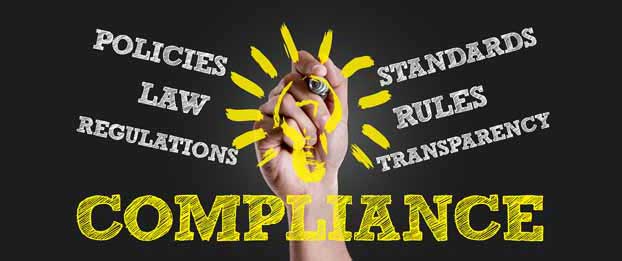Top 2016 Compliance Challenges Will Continue to Impact Employers in the Year Ahead

This has been quite a year for many reasons, not the least of which includes the results of the national election, which indicates more compliance-related changes to come for employers.
As calendar year 2016 draws to a close, now is an opportune time to reflect on the big challenges that affected employers, and what the implications are for employers for the upcoming year.
The Affordable Care Act
In 2016 employers came through the first full year of ACA reporting for the 2015 coverage year. In a recent ADP study, preparing ACA forms turned out to be more complicated and time-consuming than most organizations anticipated. In fact, about 40 percent reported spending more time on Forms 1094-C and 1095-C than Internal Revenue Service (IRS) estimates. And about 40% of employers handling ACA compliance internally did not meet the original deadline for distributing Form 1095-C to their employees.
For 2016 reporting, employers were recently given a brief reprieve when last month the IRS issued an ACA information reporting extension, specifically, the deadline for furnishing the 2016 Form 1095-C to individuals from January 31, 2017 to March 2, 2017. In addition, the IRS extended good faith penalty relief for inaccurate or incomplete forms for the 2016 coverage year; this provides relief from IRS penalties based on good faith efforts to comply with information-reporting requirements though employers still need to meet applicable IRS due dates. Unlike last year's extension, the IRS did not extend the March 31 e-file deadline for submitting forms to the IRS.
Looking ahead...At this point, the ACA is tightly woven into our health care system as over twenty million Americans rely on ACA requirements for coverage. While immediate changes and replacements are unlikely, we anticipate any new version of Health Care Reform will come with its own set of compliance complexities and challenges. For now, while the ACA may be a moving target for the foreseeable future, until the law changes, employers need to comply.
Pay Equity and the EEO-1 Report
For 50 years, the Equal Employment Opportunity Commission (EEOC) has used the EEO-1 report to collect workforce data about the number of employees by job category, sex, and ethnicity or race. Pay equity remains a high priority and in an effort to move this issue forward, in September the EEOC finalized their revised proposal to modify the annual EEO-1 report to include W-2 earnings and hours worked, by race, ethnicity, and gender.
Looking ahead...The new report will be electronically filed in March 2018 for the upcoming 2017 calendar year. For reporting purposes, this revised report increased the number of potential entries from 140 to 3,360 and, similar to the ACA, will require merging data from several systems such as HR, payroll and timekeeping systems. Additionally, depending on where you do business, many states have also acted to address pay equity, so you need to take that into account as well.
Overtime Rules
In May this year, the United States Department of Labor (DOL) released final regulations that modified certain provisions of the Fair Labor Standards Act (FLSA). Specifically, the final regulations increased the minimum salary required to be earned by an employee in order for that employee to be exempt from the FLSA overtime requirements. Even as many employers prepared to meet the new requirements, only a little over a week before they were supposed to become effective December 1st, a federal judge issued an injunction and temporarily blocked the changes.
Looking ahead... While the rule is delayed, employers should continue to evaluate the FLSA status of their employees by reviewing job duties and descriptions and ensuring that they have employees classified properly. Whether this rule is upheld or not, all employers are subject to current FLSA requirements that dictate proper classification and payment methods.
This upcoming year will doubtlessly bring many more compliance challenges to employers. With many employers uncertain about what these challenges will be, it's important to partner with someone that can help you stay on top of these complex regulations. Be on the lookout for a webinar on February 15th to get critical insights on reporting and regulatory updates that may come about along the way.



